Sayer Ji
Sep 27, 2025
Read, comment, and share the X post dedicated to this article: https://x.com/sayerjigmi/status/1971968064255086802
This is Part V in a series of Tylenol related articles. View them all here.
The Wall Street Journal’s Sept. 26 article, “Inside the Crisis at Tylenol,” reaches new heights of corporate spin by amplifying a breathtakingly absurd claim: that millions of pregnant women avoiding Tylenol could themselves trigger a rise in autism. In other words, the absence of a pharmaceutical drug — a “Tylenol deficiency” — might cause autism.
This narrative is not just illogical, it is anti-scientific. Autism cannot credibly be attributed to the lack of an over-the-counter painkiller. By elevating this line of reasoning, the WSJ not only deflects from growing evidence of Tylenol’s risks but also inverts the precautionary principle, implying that restraint is dangerous while uncritical consumption is protective.
Yet this is only part of the problem. The article also defames my work, misquotes me, and collapses two decades of research-based reporting into a caricature. Instead of grappling with the dozens of peer-reviewed studies linking prenatal acetaminophen exposure to autism, ADHD, and other neurodevelopmental disorders, the WSJ labels me a “promoter of Covid-19 misinformation” — a charge both false and defamatory.
The Wall Street Journal’s article contains multiple factual inaccuracies and defamatory mischaracterizations of my work. Among the most egregious are:
1. “Promoter of Covid-19 misinformation”
This label is both false and damaging. My reporting on acetaminophen and autism long predates the pandemic by more than a decade. In fact, when I was 12 years old (40 years ago), I submitted my first report as an elementary school student on the link between acetaminophen and liver toxicity, after spending a summer working at my father Sungchul Ji, PhD’s toxicological research laboratory at Rutgers university.
Since 2008, I have indexed and analyzed peer-reviewed studies on autism as a multifactorial condition influenced by vaccinations, prenatal ultrasounds, cesarean-section stressors, glyphosate, acetaminophen, and other exposures. To retroactively smear this body of work as “Covid-19 misinformation” is inaccurate and defamatory.
Moreover, many of the so-called points of “misinformation” attributed to my work have since been borne out by published data:
mRNA vaccines are not unequivocally “safe and effective” — post-marketing surveillance, actuarial data and VAERS reports now show life-threatening adverse effects, including death. https://openvaers.com.
Face masks do not reliably prevent transmission of COVID-19 and carry documented health risks, especially with prolonged use. https://greenmedinfo.com/anti-therapeutic-action/face-masks-lack-safety-and-ineffectiveness-research
Government officials knew of serious potential adverse effects of mRNA products before rollout, as shown by internal FDA and CDC documents obtained under FOIA. https://greenmedinfo.com/blog/covid-19-vaccine-bombshell-fda-documents-reveal-death-21-serious-conditions-possi1
PCR tests cannot reliably diagnose infectiousness and produced massive false positives, a fact now acknowledged by multiple public-health bodies. https://greenmedinfo.com/content/pcr-testing-unmasked-illusion-viral-detection-sea-nucleic-acids
The height of irony is that the very public health authorities describing my work as “dangerous misinformation” such as former Surgeon General Vivek Murthy, himself was found to be suppressing potentially life-saving information about the dangers of the mRNA jabs, while we who were targeted viciously by our own government as the so-called “disinformation dozen” were telling the truth all along. More details below:
Truth, Reconciliation, and the Surgeon General’s Cover-Up of Vaccine Injuries
Who Was Really Spreading Misinformation?
2. “Ji has contended …”
The article reduces nearly 20 years of research-based analysis to a casual “contention.” This minimizes the scope of my work. I have not simply “contended” these links; I have spent almost two decades systematically cataloging and making publicly accessible the biomedical literature on these risk factors.
My platform has also featured contributions from leading researchers such as William Parker, PhD, whose pioneering work on acetaminophen toxicity I have frequently cited and integrated. Rather than addressing this growing body of evidence, the WSJ resorts to ad hominem attacks to divert attention from the facts: over 6,900 studies document acetaminophen’s toxic profile, and my recent four-part investigative series details its well-established harms—not only to pregnant women and infants, but also to adults. Research shows that even a single 1,000 mg dose can blunt affect, reduce empathy, and increase risk-taking behavior, underscoring the drug’s profound impact on psychological health.
3. False implication of coordination
The WSJ article creates the impression that I was part of a line of communication between Secretary Kennedy and Kenvue. Specifically, it reports:
“Kennedy texted Perry the link to a Substack written by Sayer Ji … who has spoken at events alongside prominent members of Kennedy’s Make America Healthy Again movement.”
By combining Kennedy’s private text with references to my work and my past appearances at public events, the article frames me as if I were involved in Kennedy’s outreach to Kenvue. This is misleading. I explicitly told the reporter that I have no knowledge of, and cannot confirm, any communications between Secretary Kennedy and Kenvue or its CEO. That reporting point originated with the WSJ, not me.
My work on acetaminophen and autism is entirely independent. It is grounded in two decades of research reporting and public indexing, not in coordination with political figures or corporate entities.
4. Misquotation of my email
The WSJ wrote:
“Ji … said in an email that his readership has grown with the increased interest in Tylenol-autism information.”
This is not what I wrote. Here is my verbatim statement:
“Public interest in the Tylenol–autism issue has unquestionably grown, and my readership reflects that heightened awareness. Parents and families are hungry for clarity, accountability, and transparency, and I see my role as amplifying the scientific and historical record so people can make informed choices.”
The difference is crucial. I did not suggest my readership grew “with” Tylenol coverage, as if I were chasing a trend. I emphasized that parents are driving the interest because they seek answers, and that my role is to amplify evidence responsibly.
You can view my full response to the reporter Sara Ashley O’Brien below, which was subsequently misquoted:
5. Irresponsible amplification of corporate spin
Perhaps most concerning, the WSJ repeats Kenvue’s framing that avoiding Tylenol in pregnancy could itself increase autism risk. This claim is scientifically baseless and logically incoherent. Autism cannot credibly be attributed to the absence of a pharmaceutical drug.
By elevating this narrative, the WSJ misinforms the public and inverts the precautionary principle. In doing so, the article also sidesteps the central scientific issue: dozens of peer-reviewed studies — including large cohort studies, sibling analyses, and systematic reviews — have reported associations between prenatal acetaminophen exposure and increased risk of autism, ADHD, and other neurodevelopmental disorders. Ignoring this evidence while amplifying corporate spin is not journalism; it is public disservice.
6. Irrelevant labeling
The WSJ further describes me as “the vaccine skeptic whose Substack Kennedy had texted to Perry.” This label is misleading and irrelevant to the subject at hand. My reporting on acetaminophen is grounded in its own robust evidence base and should not be caricatured through unrelated labels designed to delegitimize my work. Furthermore, I index research on the unintended, adverse effects and safety issues with common vaccines in today’s schedule. The studies speak for themselves. Resorting to the label of “vaccine skeptic” is a textbook ad hominem meant to discredit the messenger rather than grapple with the evidence — a tactic the public is increasingly recognizing and rejecting.
As a paying WSJ subscriber, I find it telling that my comment—intended to correct mischaracterizations of my work—has not been approved for publication. Notably, one of the article’s three authors, Sara Ashley O’Brien, whom I’ve corresponded with and who subscribes to this Substack, may be in a position to alert her colleagues and help lift the block.
Even many of WSJ’s own paying subscribers were critical of their article. Below are a few comments worth highlighting.
The Stakes for Public Trust
The public deserves reporting that reflects the actual history and substance of my work rather than caricatures designed to delegitimize independent researchers. The stakes are too high for parents, families, and public health to allow these distortions to go unchallenged.
For those who want the full evidence-based history, I encourage you to read my four-part investigative series:
Part I: Breaking: Government Finally Admits Tylenol-Autism Link After Years of Corporate Cover-Up
Part II Tylenol and Autism, Part II: The Swedish Study That Got It Wrong
Part III: Broken Trust: The Tylenol Cover-Up That May Have Damaged Millions of Children
Part IV: Tylenol: From Painkiller to Empathy Killer
Putting WSJ on Notice for Defamation
In addition to misquoting me and amplifying the scientifically baseless claim that avoiding Tylenol could cause autism, the Wall Street Journal’s article defames me directly by labeling me a “promoter of Covid-19 misinformation.”
This is categorically false. Not only has my reporting on acetaminophen’s risks began more than a decade before the pandemic and has always been independent of COVID-era debates, their defamatory statement simply recycles previous allegations that have been refuted and are subject to official legal recourse.
I have therefore formally placed the Wall Street Journal on notice:
“The article describes me as a ‘promoter of Covid-19 misinformation.’ This is false and defamatory. My reporting on acetaminophen’s risks began over a decade before the pandemic and is wholly independent of COVID-era debates.
I am formally placing the Wall Street Journal on notice: I am already a plaintiff in ongoing federal litigation against the Center for Countering Digital Hate and related entities for defamation and coordinated reputational harm (Finn v. Global Engagement Center, No. 4:24-cv-01395, N.D. Fla.). The WSJ’s repetition of this defamatory label compounds the injury at issue in active litigation.”
This matters not just for me personally, but for the broader record. Other major outlets — including The Guardian, The Independent, and Forbes — have already issued corrections to their coverage of the so-called “Disinformation Dozen.” Even Wikipedia now acknowledges Meta’s rebuttal, which showed that CCDH’s claims were misleading and unsupported: posts from the twelve individuals in question accounted for only about 0.05% of all vaccine-related content views on Facebook.
The WSJ’s failure to meet even this basic standard of correction underscores the stakes: unchecked defamatory framing doesn’t just damage reputations, it misleads the public and shields corporate power from accountability.
Sayer Ji
Founder, GreenMedInfo
Co-founder, Stand for Health Freedom
Chairman & Co-founder, Global Wellness Forum

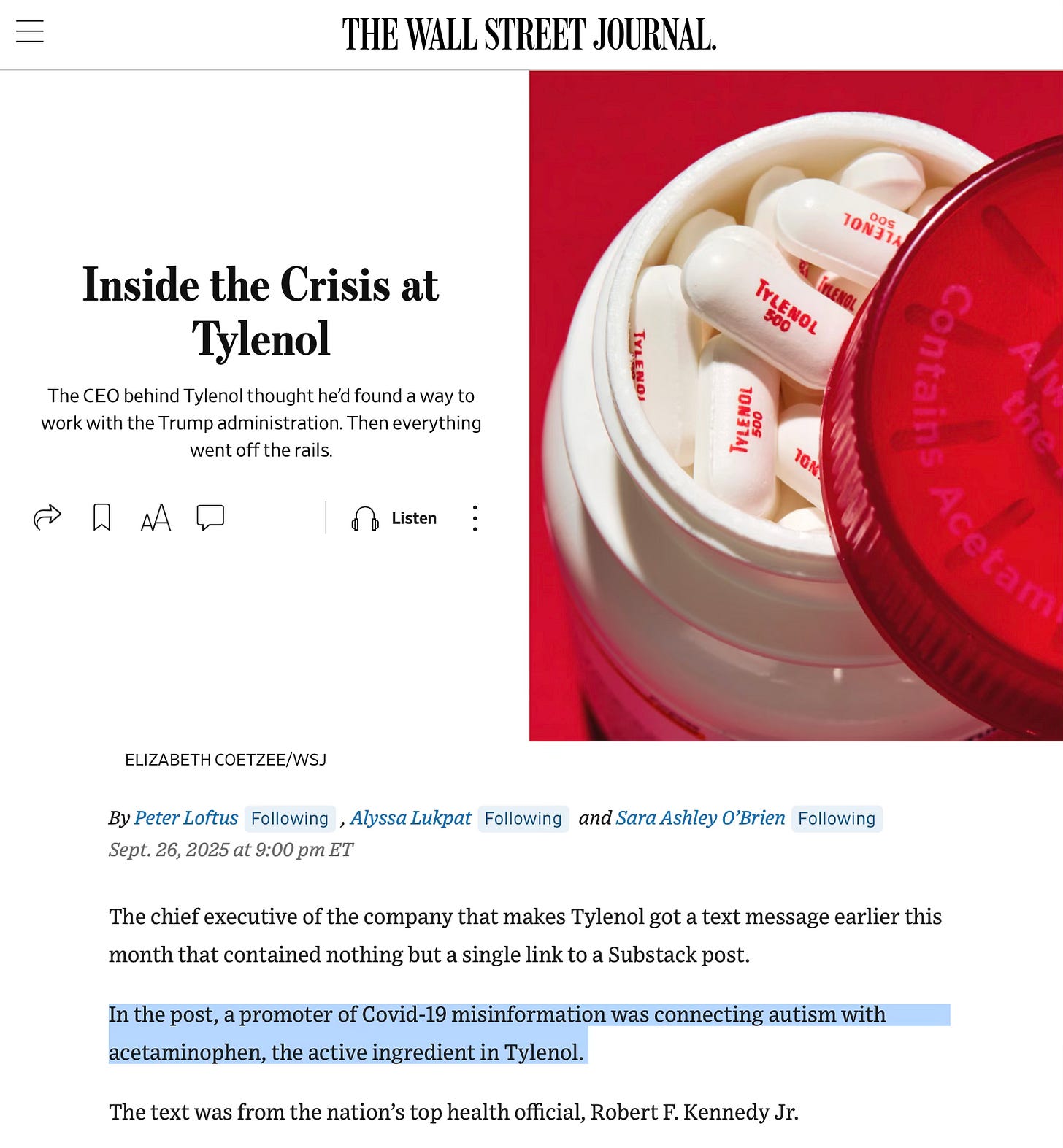
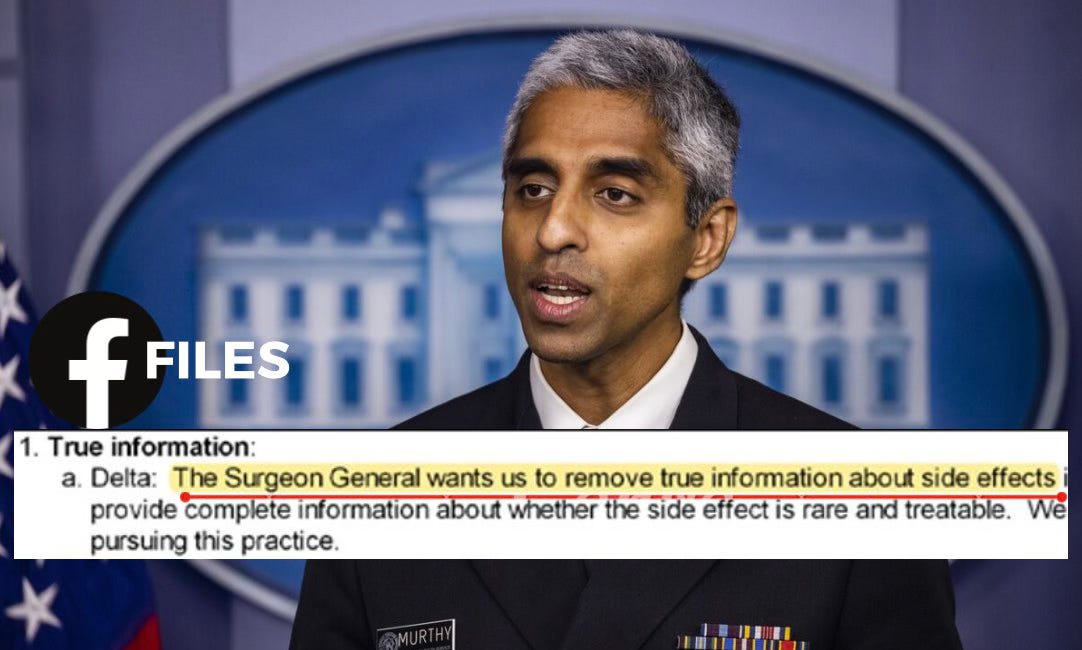
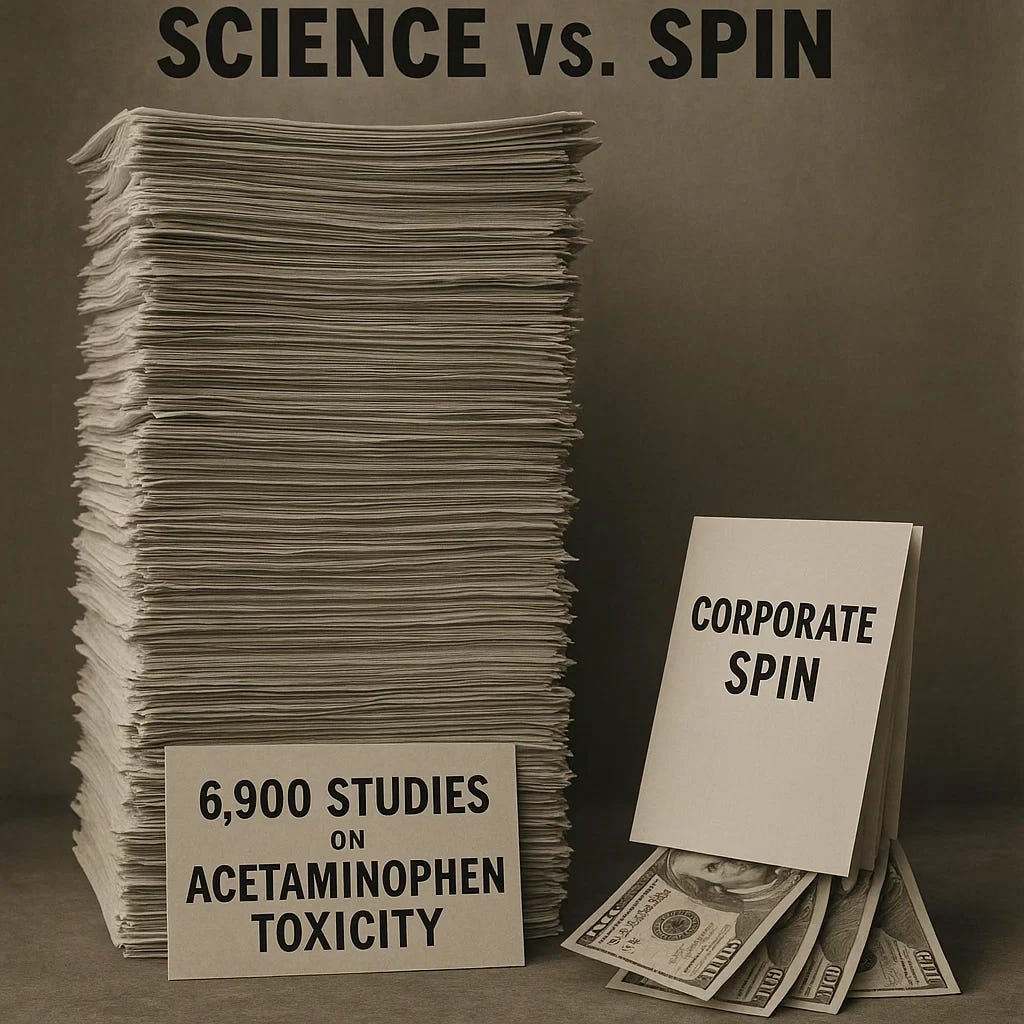

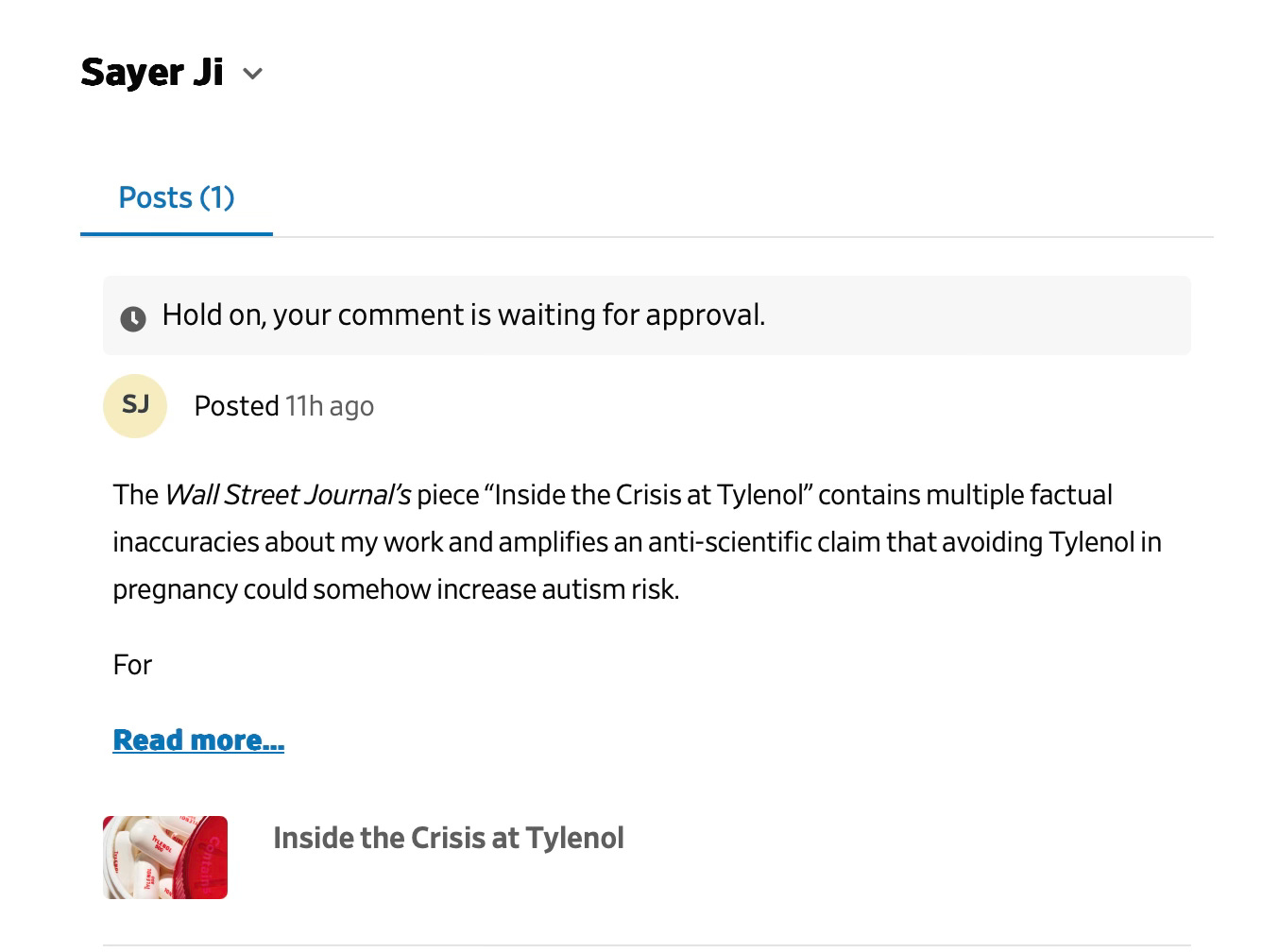

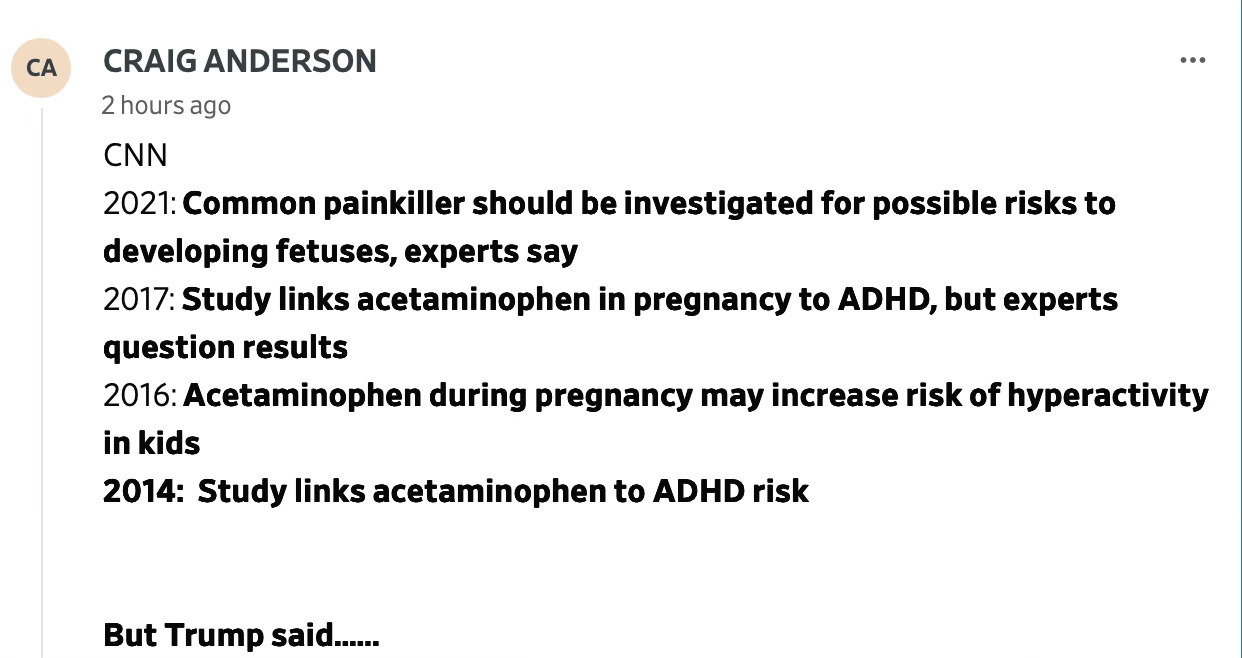

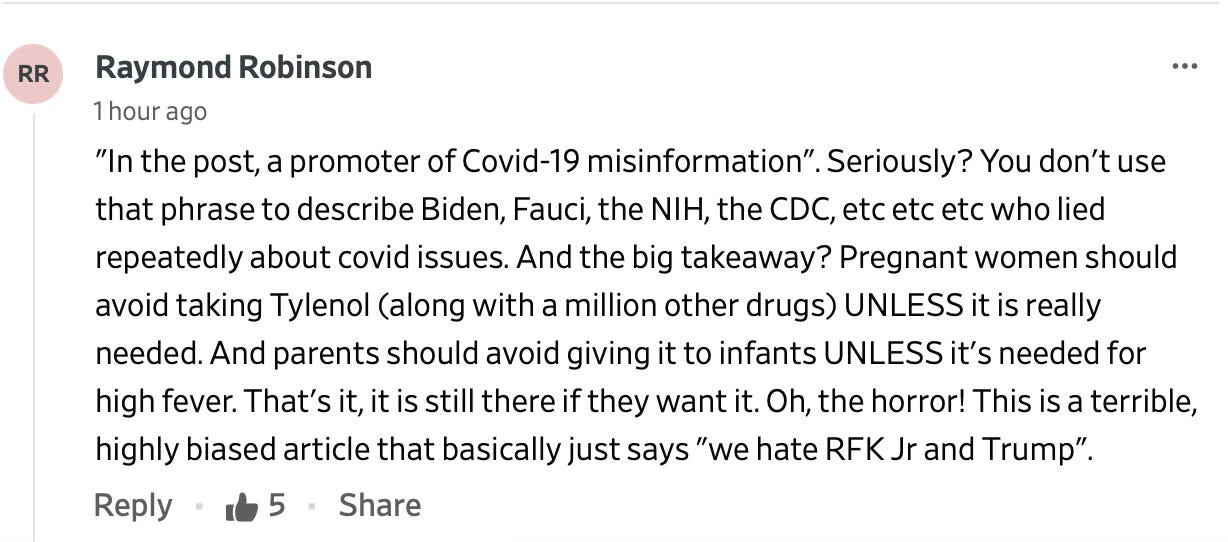

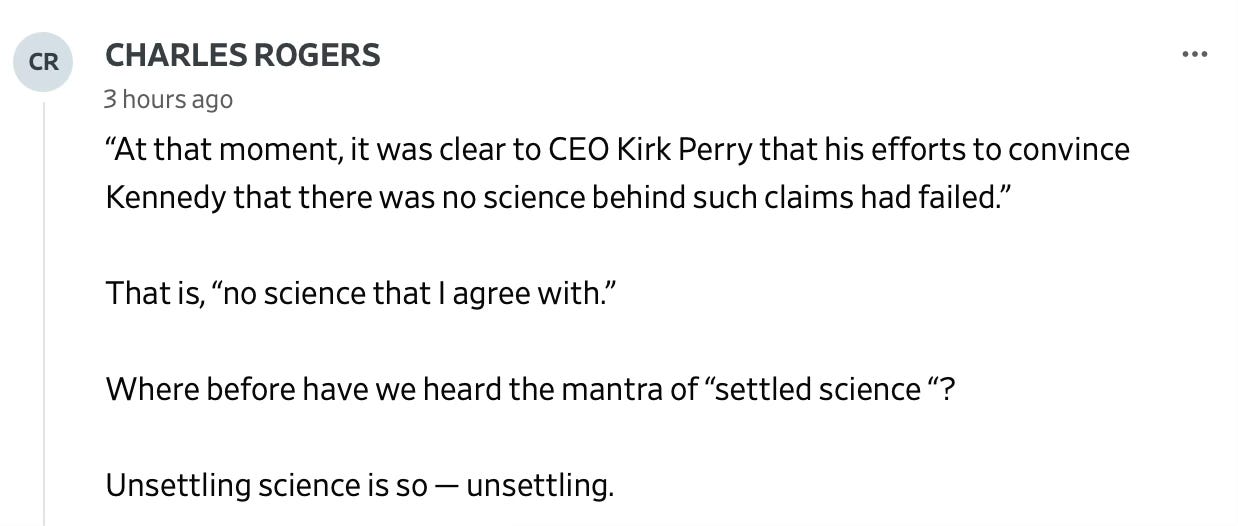
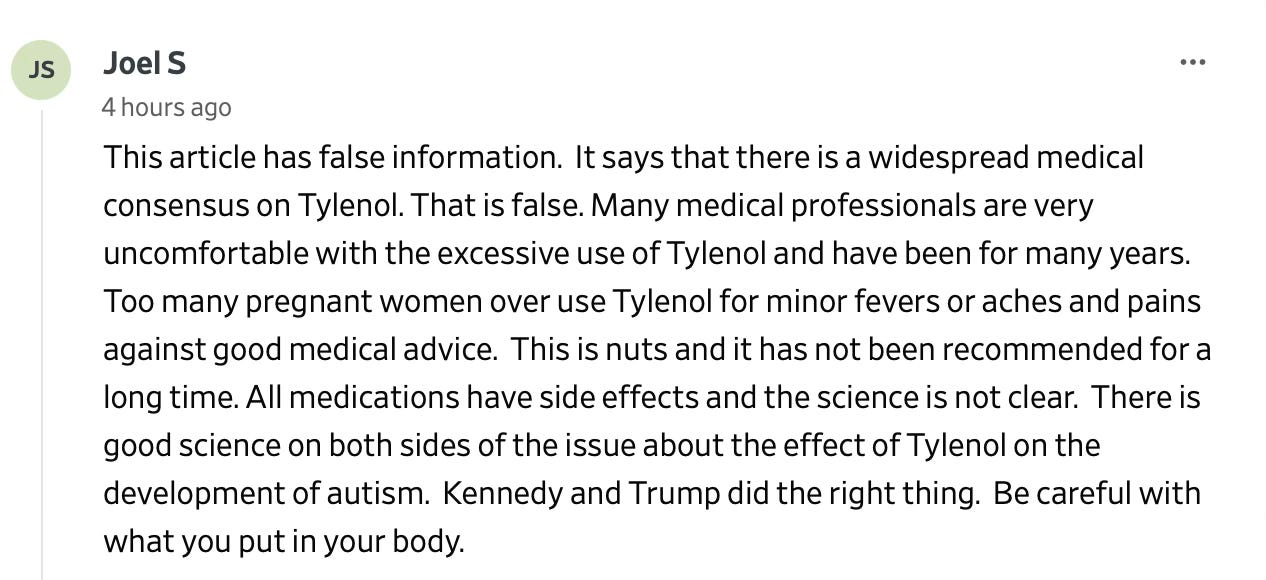
No hay comentarios:
Publicar un comentario